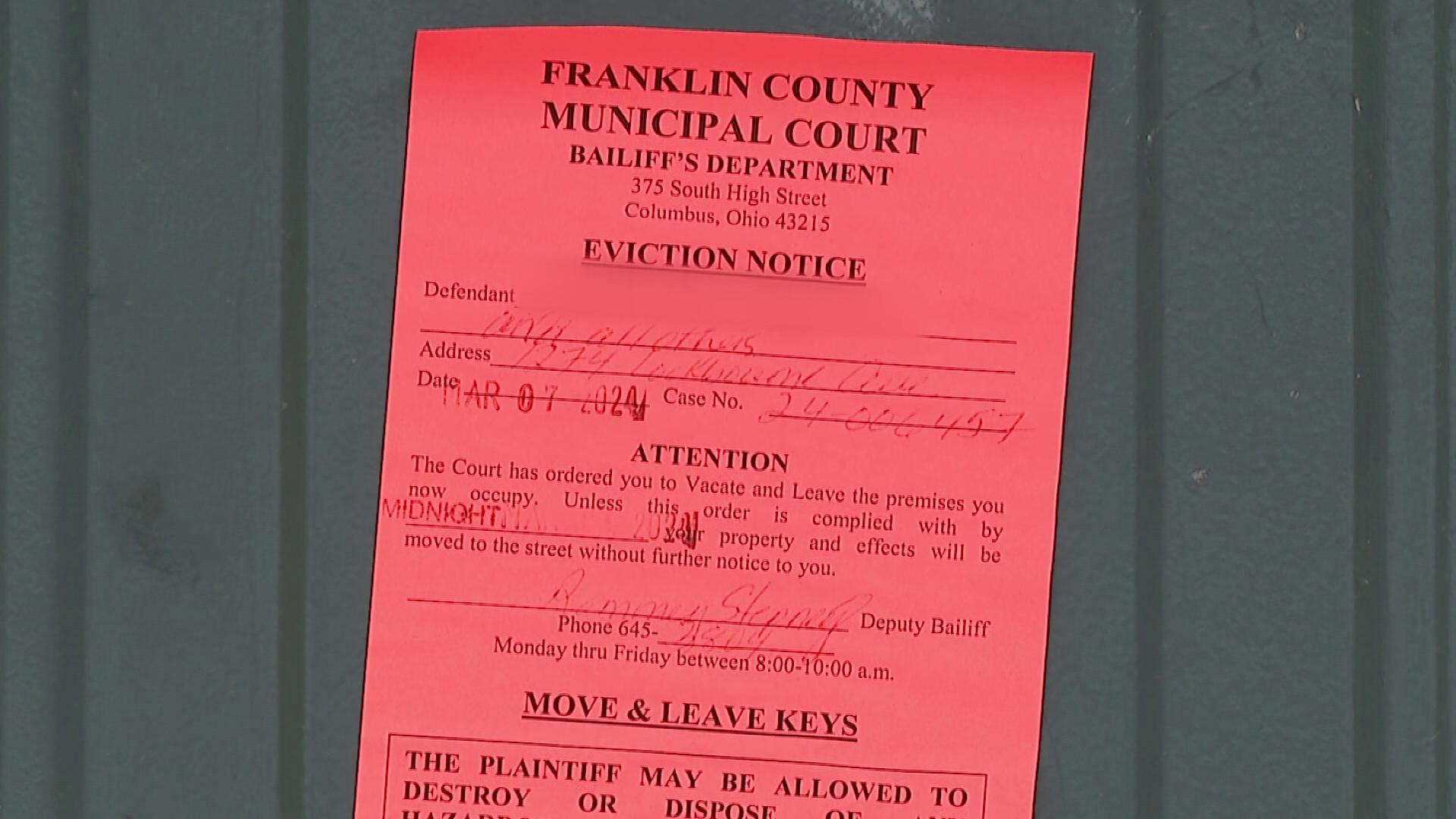COLUMBUS, Ohio — Franklin County is on course to set another record for evictions.
In 2023, the county saw 23,900 evictions, an increase of 12,000 from the year prior.
This year, the county is on pace to hit 26,000 evictions, according to Magistrate Tony Paat who oversees Franklin County Eviction Court.
“A lot of these folks are at least two months past due or three months,” says Paat who has overseen the county’s eviction court for 30 years.
Paat says in the majority of those who face eviction get into trouble for a basic reason.
“It boils down to money management. They're not good at that,” he says.
10TV examined court records, spoke to people facing eviction and landlords who are evicting tenants to get a better understanding of what’s driving up the numbers.
Rents are higher now that ever before
The median rent in Columbus in 2017 was $997. Today, the average rent is $1,260, according to apartmentslist.com
“There's a reason why eviction is high. It's not that people don't want to pay their rent. It's that they can't,” says Lequicia Ferrel, who says she’s facing eviction after losing her job last year.
“if your rent is $1,200 and you make and you make $25 an hour, you can't afford it,” said Mikaelah Thandler, who says she’s facing eviction after being in the hospital for a month.
With fewer affordable housing options for low income renters, many find themselves squeezed out of the housing market.
According to the low income housing coalition, Columbus needs nearly 270,000 affordable housing units for the low income. https://nlihc.org/housing-needs-by-state/ohio
“I think it's a crisis yeah, with the trends if we don't get it control, I do worry about what that means for the long run not just for low income communities but for Columbus as a whole,” says Jyoshu Ysushima an attorney with Columbus Legal Aid Society.
Landlords big and small say high rents can be contributed two factors.
“In the last two years our property taxes have gone up $20,000 so we have to pass the cost on to the renters. In the last two years, we've filed more evictions than we ever have,” says Collin Collins whose family has rented property in the downtown area of nearly three decades.
Another landlord says out of state investors are also responsible for higher rents.
“I've seen investors out of California. They are contributing to these higher rent prices,” says Angela Harris who has been renting property in Columbus for 27 years.
According to Eviction Monitors, the most evictions happened in the 43232 zip code in southeast Columbus. It’s not clear why.
Once an eviction is ordered, and a writ is issued by the court, by law, tenants have 90 minutes to remove their belongings and leave the premises.
In 2023, the 10th district Court of Appeals ruled that landlords with federally-backed mortgages must provide tenants a 30-day notice before filing for eviction. Landlords who use traditional loans can still utilize the three-day notification. The case was appealed to the US Supreme Court, which is expected to issue a decision sometime this year.
Rising evictions can’t to be attributed to single issue.
The rise in evictions could get worse, according to IMPACT which works to address poverty.
“In 2024, we have less than $15 million for the entire year and we will only be able to serve an estimated 5,000 households. Our agency funding from 2020-2023 for Emergency Rental Assistance was over $100 million and we served over 40,000 households. We are seeing an alarming number of households that need help! Families are struggling with the ability to work and live in this great city. Households are making decisions about medication, childcare, utility costs, groceries and transportation before they can begin to think about the rising costs of rent and living expenses. This is scary,” said Keith Queener, Director Community Engagement and Development IMPACT Community Action.
The organization says the average person requests $3,500 in assistance.
Last year, Franklin County averaged two evictions an hour. But there are ways for people to get help.
On the 11th floor of the Franklin County Municipal Court house, there are tables that offer free legal advice, and applications on how to receive rental or utility assistance.
Rentful is a one stop shop on line that allows people to connect with resources to help with rental assistance and more.
Meanwhile, people like Mikaelah Thandler who was given a week to move out is unsure what her future housing will be.
“I'll be homeless,” she said.

